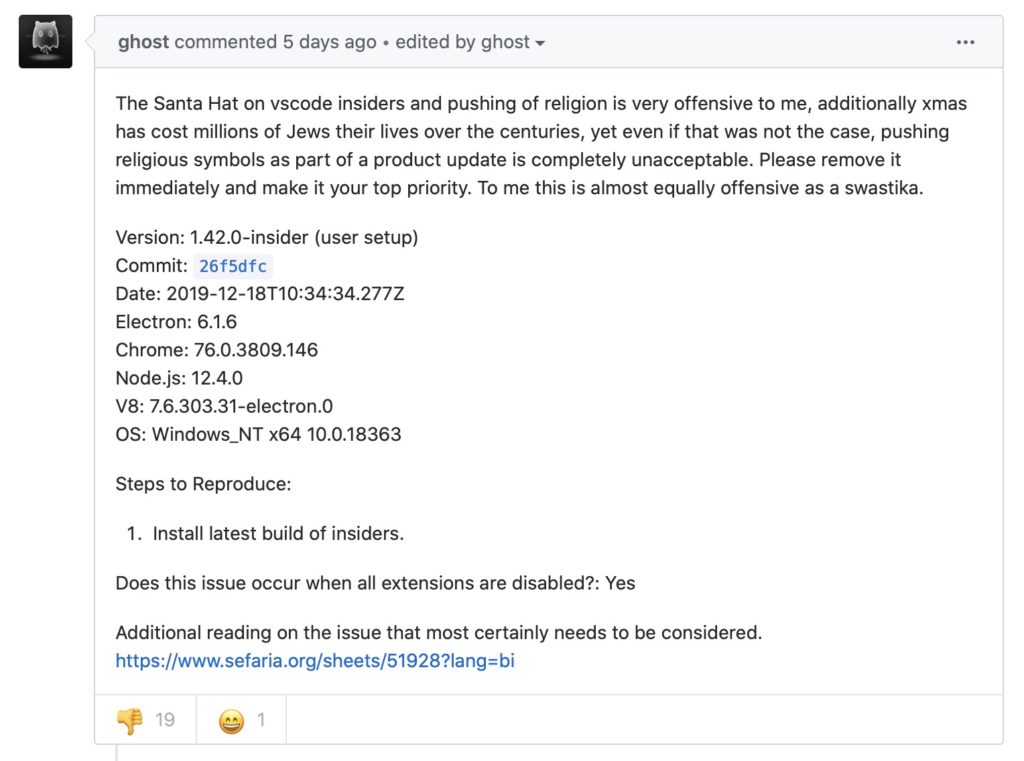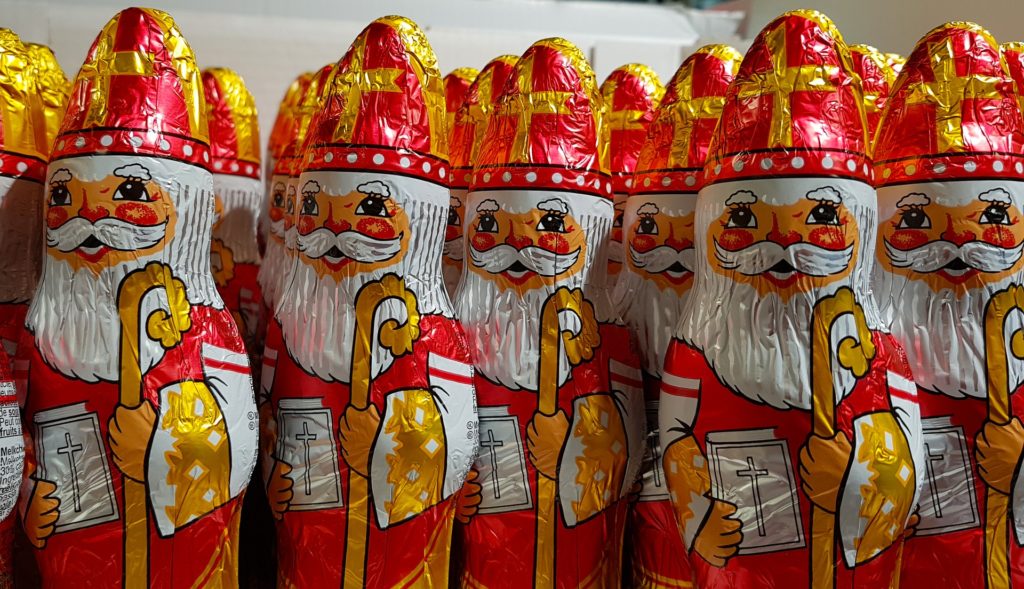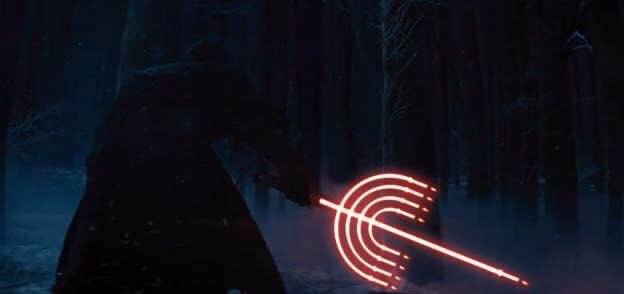There’s an important conversation about Xmas happening in the open-source community right now.
VS Code (a very popular code editor made by Microsoft) received a festive beta update, in which the Settings icon was adorned with a Santa hat. Shortly after, a GitHub issue was opened describing the symbol as “very offensive”, and the Santa hat was promptly removed.

There’s a great write up on the community backlash to this decision, and Microsoft’s response, on Visual Studio Magazine. I wanted to step into the conversation with my Jewish perspective.
Important note: My particular take on this, especially toward the end, differs from mainstream Judaism. Which should be unsurprising. If there’s one thing Jews can agree on its that we don’t agree.
The Ghost of Xmas Past
You might have noticed that Jews tend to prefer the styling “Xmas” to “Christmas”. That’s because for us, the “Christ” part of Christmas is closely associated with violent anti-Semitism.
For many Jews, Santa is a modern day representation of Saint Nicholas – an icon, and reminder, of Christianity.

I won’t go into detail here (Sefaria has a great writeup on Christian anti-Semitism), except to say that we’ve suffered Crusades, pogroms, the Inquisition, blood libels, forced conversions, and the Holocaust – all in the name of Christ.
So, of course, when we see a hat synonymous with Christmas, we make a connection with that traumatic history.
To me, Santa’s uniform isn’t anywhere near as offensive as a swastika, but it’s on the same spectrum.
I don’t want to dwell on this, though. It’s what we call p’shat – the plain sense of things. There’s another layer that I think could be helpful to unpack.
Downward Pressure
Another aspect of the Jewish relationship with Xmas is the idea of living as a minority within a dominant culture.
As Jews in the West, we see Xmas everywhere at this time of year. It’s impossible to avoid. Our kids are taught Xmas songs in school and we are bombarded with Xmas trees and Santas while grocery shopping.
Nobody complains about this, it’s just part of living in the West. In fact, Jews are better off in the West than anywhere else in the world we’ve tried to call home (outside of Israel). We love it here!
But when thinking about embracing our own culture, and passing it on to our children, there is a very real challenge to “rise above” the dominant culture that surrounds us.
We try to make Chanukah even more fun and exciting. For example, Chanukah never included presents until it started competing with Xmas (now we have 8 nights of presents!).

If we don’t make an effort, Chanukah would be drowned out in the noise of Xmas. It’s this constant downward pressure from the dominant culture that can cause frustration and angst, and maybe even result in an anti-Santa GitHub issue.
Quick aside: The Chanukah story – the story of the Maccabees – is all about a Jewish minority fighting against the dominant culture.
Against Insularity
One way that Jewish communities protect their Chanukiot (Chanukah menorahs) from being out-shined by Xmas lights is by retreating into private communities. We send our kids to Jewish schools, eat in Jewish restaurants, arrange Jewish marriages, and try to have as little to do with non-Jews as possible.
This strategy has worked great so far. There aren’t very many cultures around today as ancient as ours (though there are a few).
I have to wonder, though, whether our insularity might have nudged our neighbours a little in the direction of jingoism.
My kids don’t go to a Jewish school. This means that my wife and I have to make a huge effort at home to teach them about Jewish culture, history, language, art, and tradition.
But it also means that every other kid at their school knows a Jew.
Personal story time: I cried during school assembly this year.
Instead of an Xmas carol, my son’s entire class sang I have a little dreidel. They all learned a few Hebrew letters and the Chanukah story. How can anyone harbour anti-Semitic hatred after embracing their Jewish friend like that?
It’s become glaringly obvious to me that the pathway to peace is integration, not insularity.¹
Techno-Optimism
The progressivism² at play – both at our school and in the VS Code Github repo – has become the norm in tech communities. Microsoft recognised their mistake, and rather than ignore it (or worse cry war on christmas), they fixed it and apologised.
I don’t think that would have happened when I was a kid. Maybe not even 10 years ago. We’re living in a moment where the world is expected to not only “cater for”, but embrace the needs and nuances of minorities³.
And credit where credit’s due – we wouldn’t be here without LGBTQ activists, Me Too, and Black Twitter.
We have, at times, overbalanced. There have been extreme cases of call-out and cancel culture that caused more harm than good. But there’s something profoundly good at the heart of this simple idea which (I hope) has finally begun to sink in:
Do to others as you would have them do to you.
1. Integration is not the same thing as assimilation. As Jews, we have a G-d given mandate to be uniquely “separate”. I’m talking about rainbow, not beige.
2. I like to thing of it as “Anti-Otherising” – making a concerted effort to make outsiders feel welcome. I don’t know of a better word, though.
3. Again – my lack of adequate language is at play here. My intention is to include the momentum of feminism in this, though women are not a minority. The term “under-privileged” doesn’t work here either, because Jews are very privileged. Jews (especially Ashkenazim) sit in a very difficult to describe place – to the far right we’re wolves in white skin, but to the far left we’re the at the zenith of white privilege.